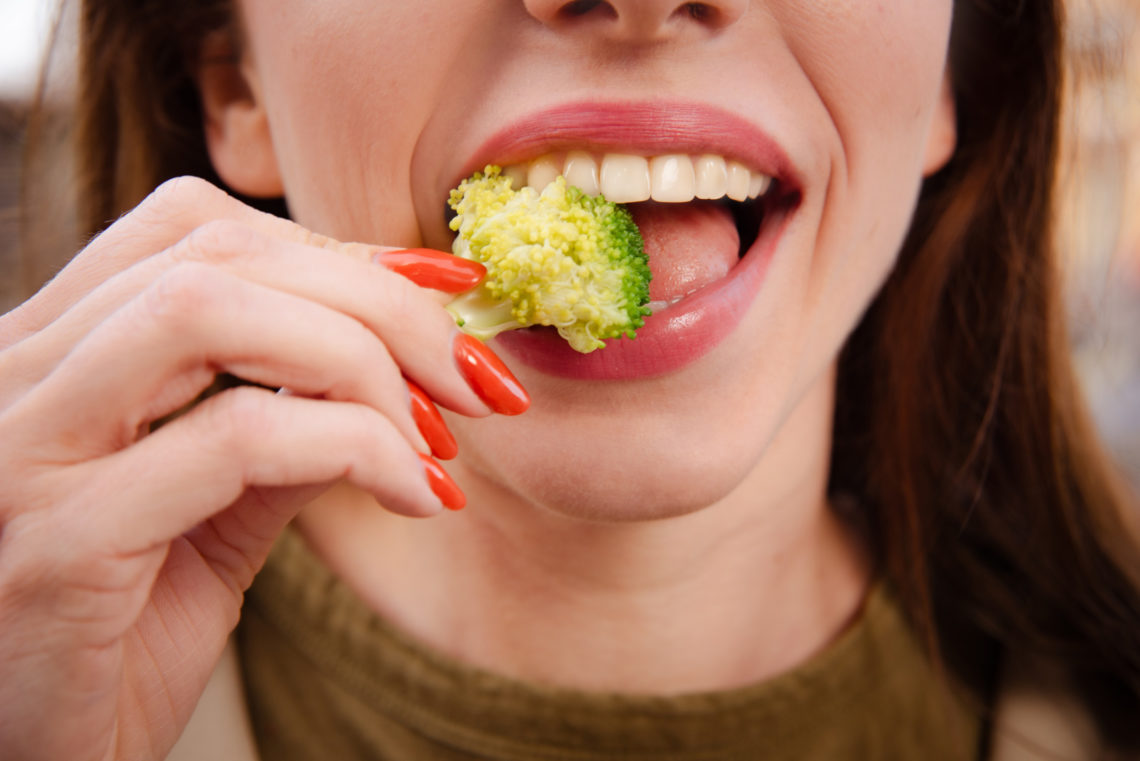Packed with essential nutrients like vitamins, minerals and fiber, vegetables are at the heart of a healthy diet, with doctors recommending consuming multiple portions a day. However, while good for the body, they may not necessarily be good for the teeth.
This is the conclusion of a study by researchers from the Universitat Politècnica de València, in Spain, which found that plant-based diets can have a permanent, damaging effect on your tooth enamel.
Enamel covers the innermost layers of teeth, the dentin and pulp, protecting them from damage. It is the hardest substance in your body—including bones—and is even stronger than steel.
But despite all of this, enamel is also brittle and can be easily damaged. It is particularly vulnerable to bacteria, plaque and acids in your mouth—but can also be worn down mechanically by the process of eating.
In their study, the researchers created artificial leaves embedded with plant phytoliths—microscopic particles of silica (as seen in sand) found in the cells of plants—and then rubbed them over human teeth to analyze the effects.
What they found is that these particles do indeed cause wear on enamel, particularly in teeth that are already affected by pre-existing damage. They also cause mineral loss.
The main form of damage was not via cracking, but “quasi-plastic deformation”—a permanent structural change caused by tiny shifts and fractures within enamel rods.
(The phytoliths themselves also broke down during the tests, showing that they too undergo wear.)
Tooth enamel is made of calcium, phosphorus, water and proteins, bonded together to form a protective layer for your teeth. Erosion of the enamel causes teeth to become more vulnerable to cavities, sensitive to heat, cold, and sweets, and also makes them stain more easily.
According to the Cleveland Clinic, while small cavities can be repaired by dentists, enamel itself cannot be replaced, and it also doesn’t grow back. When it’s lost, the only thing a dentist can do is place dental crowns on your teeth to prevent further damage.
Prevention is the best way to look after your enamel. Flossing and brushing your teeth daily (using a fluoride-based toothpaste and a soft brittle brush) are great ways to keep your teeth in shape.
Staying hydrated and drinking acidic beverages only through a straw, to minimize contact with your teeth, can also help prevent damage. If you grind your teeth at night, wearing a mouth guard can also help prevent wear.
Do you have a science story to share with Newsweek? Do you have a question about enamel? Let us know via [email protected].
Reference
Lakhal, Y., Redolat, J., Sánchez-González, E., Constantino, P. J., Berthaume, M. A., Borrero-Lopez, O., & Pinilla-Cienfuegos, E. (2025). Novel experimental methods to investigate the effects of plant phytoliths on tooth enamel wear. Journal of the Royal Society Interface, 22. https://doi.org/10.1098/rsif.2025.0175
The post Eating Vegetables Might Permanently Damage Your Teeth appeared first on Newsweek.




